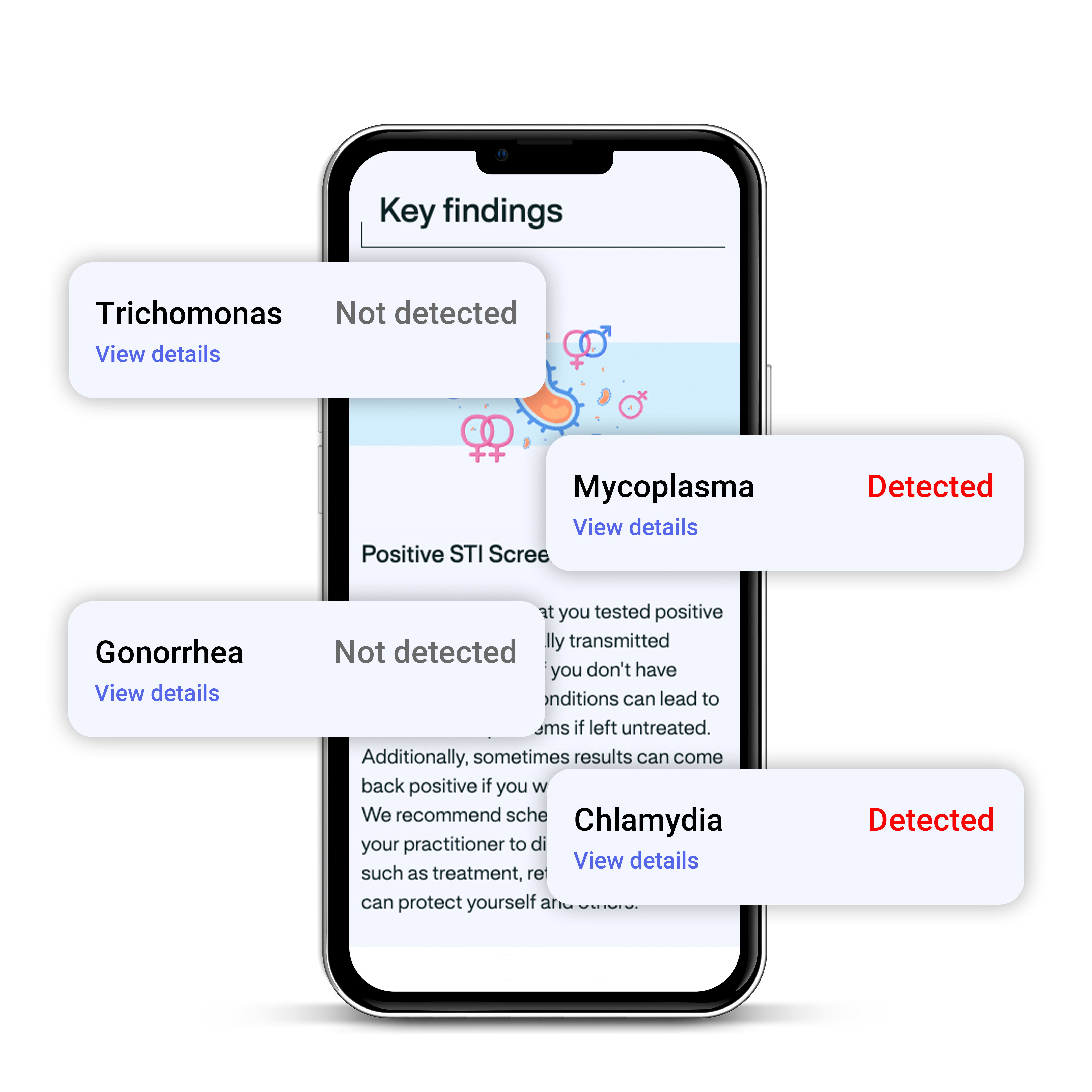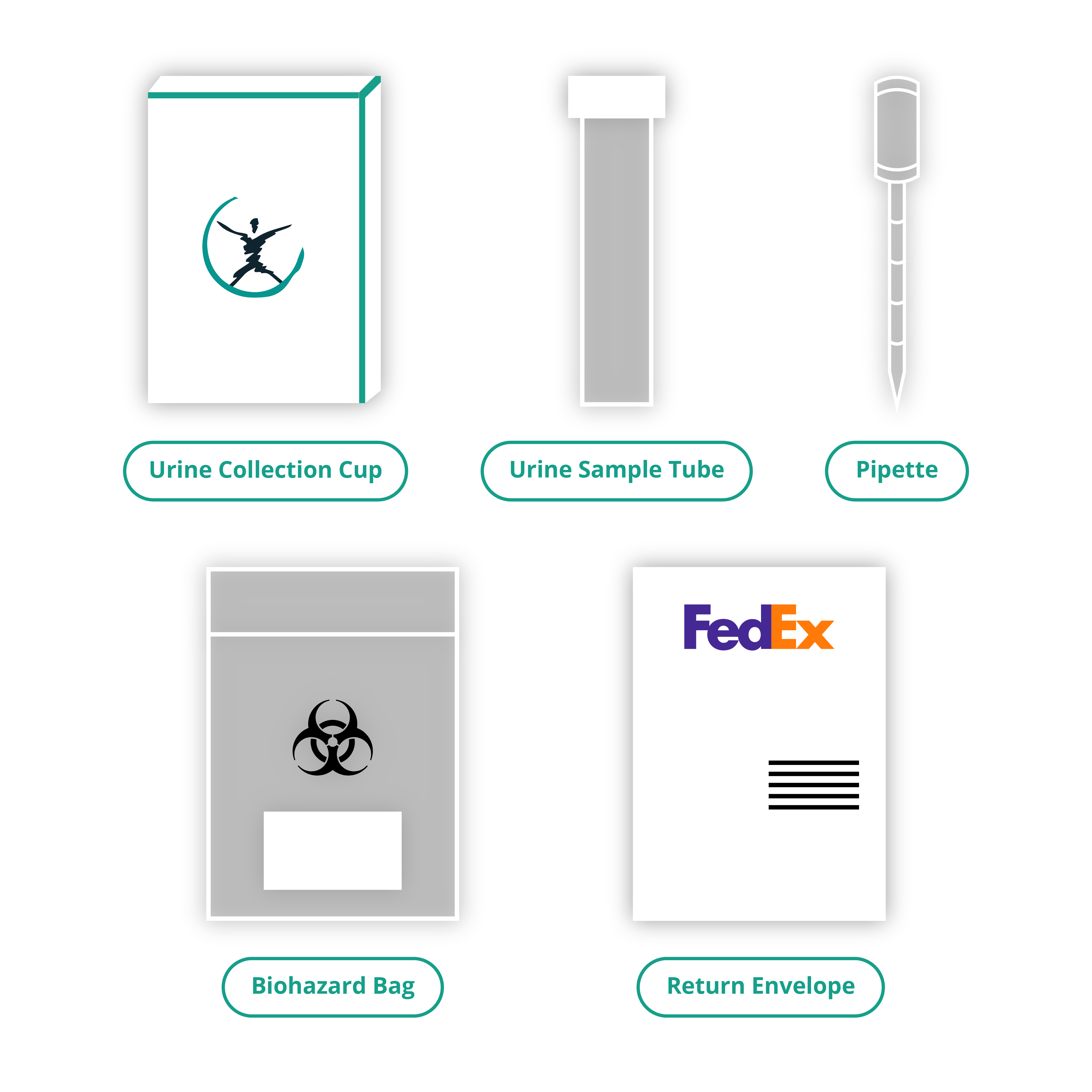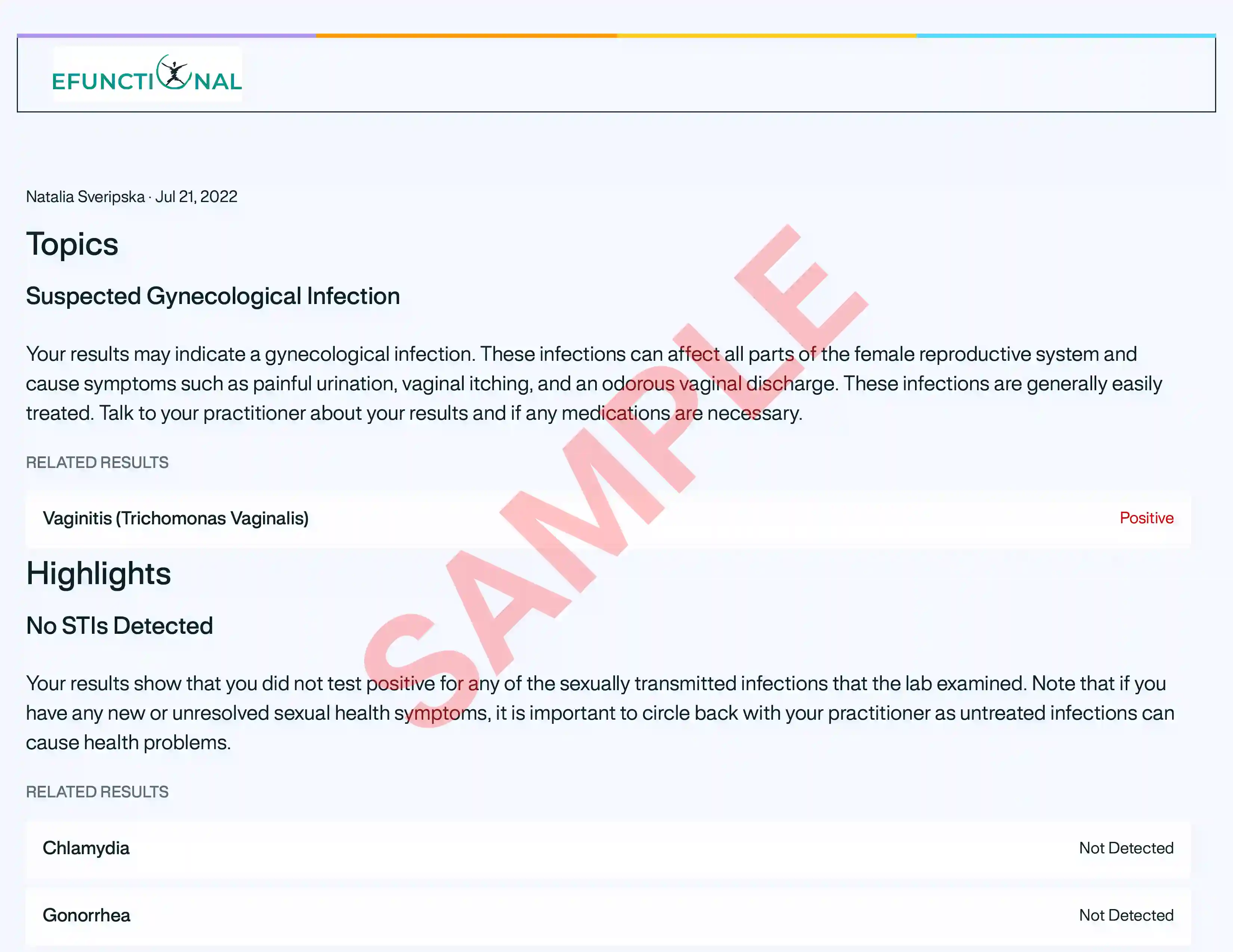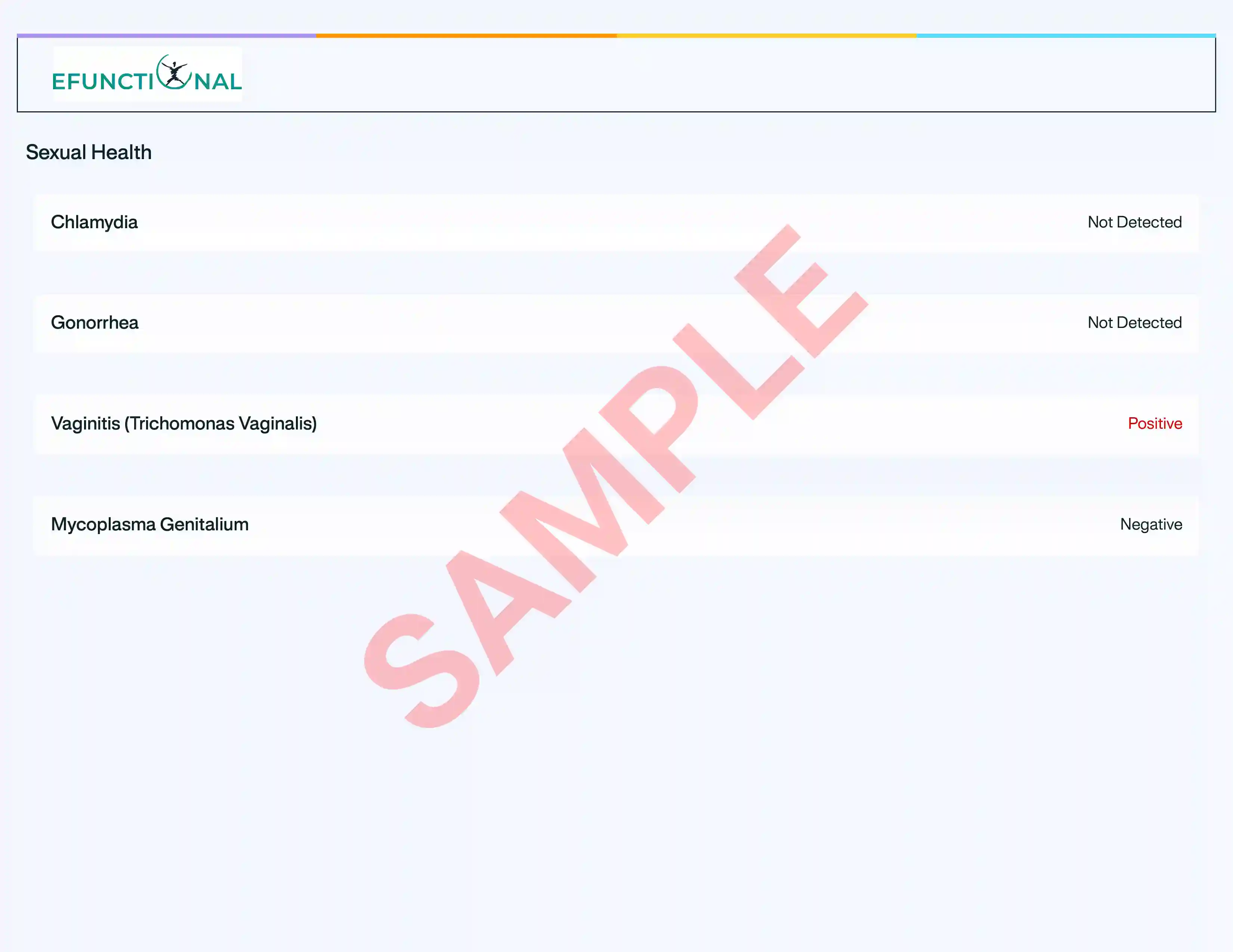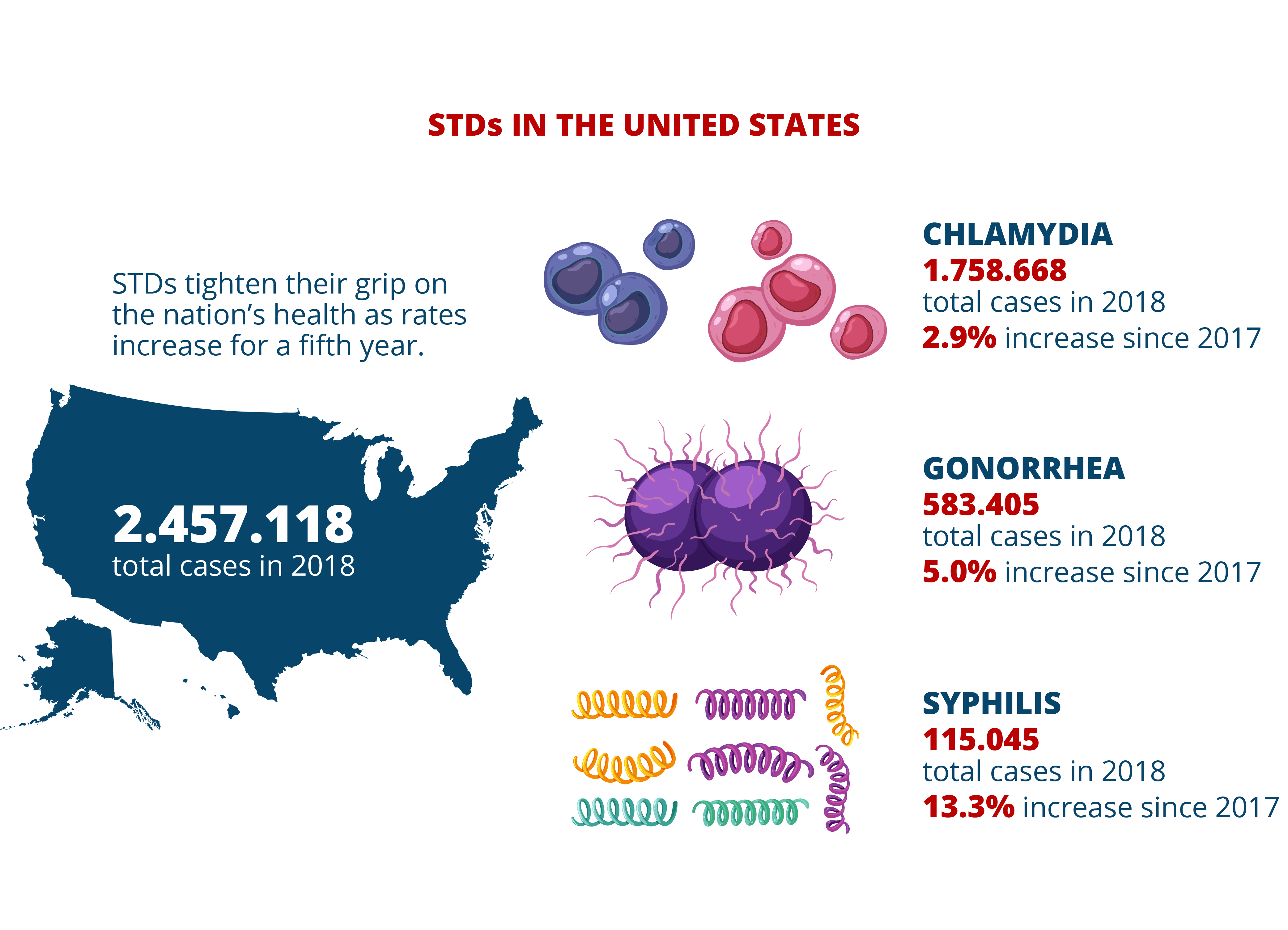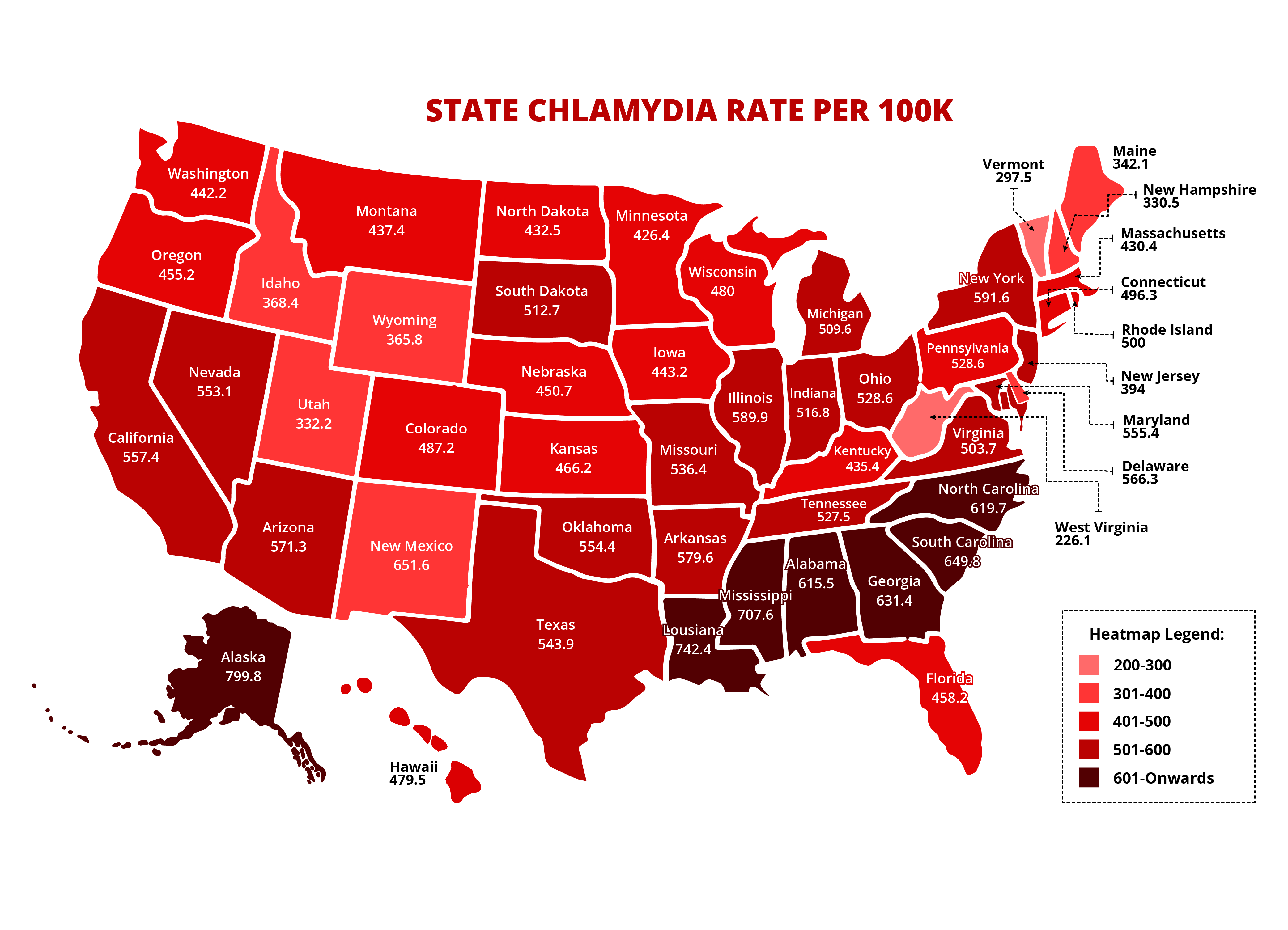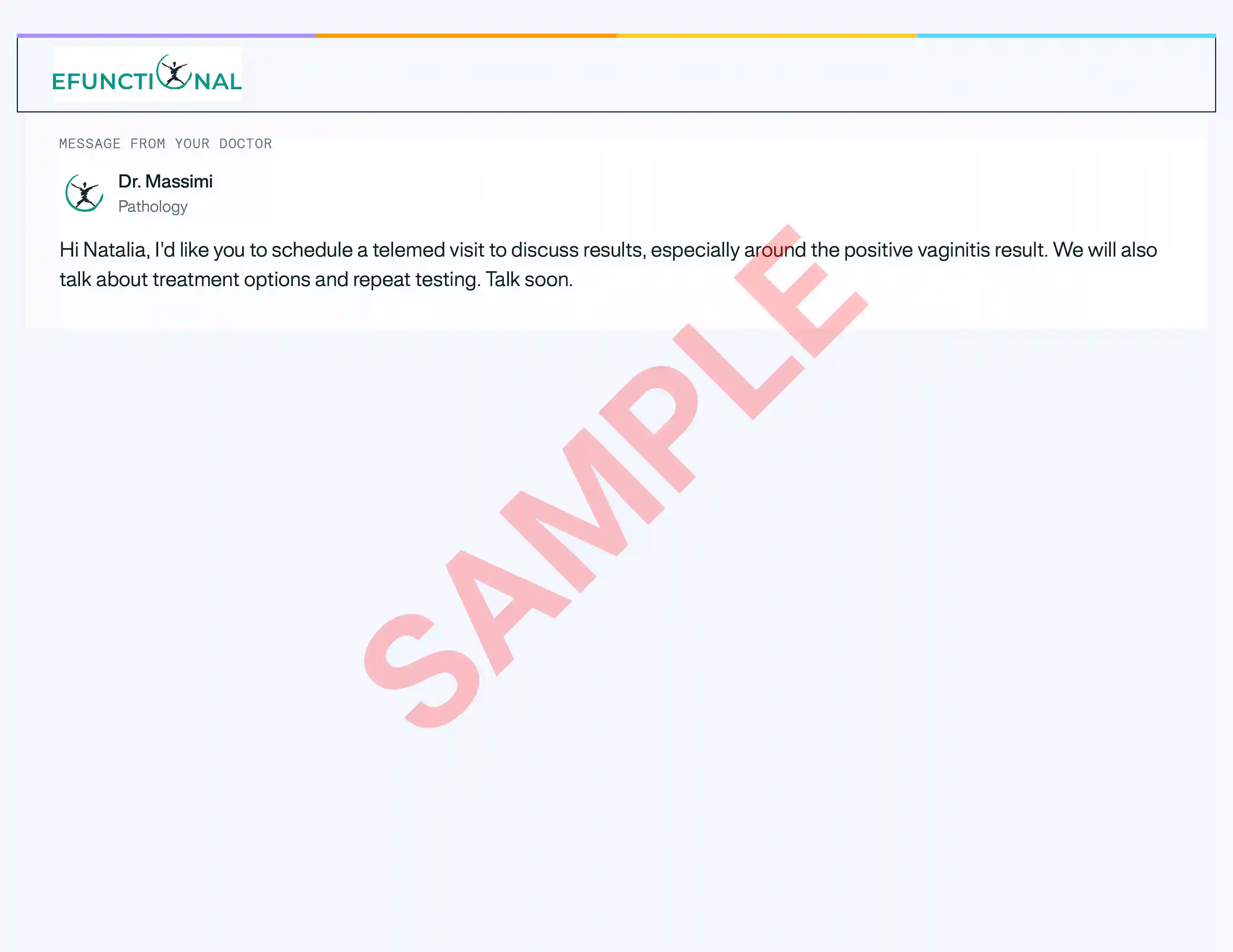STD Test - 4 Most Common
The STD Test offers an easy, confidential, and reliable way to check for STDs from the comfort and privacy of your home. A simple urine sample is used to test for common sexually transmitted bacterial infections.
Tests For: Chlamydia, Gonorrhea, Mycoplasma, Trichomonas.
Collection Method: Urine Sample.

Discreet Packaging

Confidential Results

Trusted Laboratories
Why get tested?
Protect Your Health: Testing for STDs can detect infections early, allowing for timely treatment and preventing complications.
Prevent Transmission: Knowing your STD status enables you to take precautions to avoid spreading infections to sexual partners.
Promote Public Health: Regular testing contributes to the overall well-being of your community by reducing the prevalence of STDs.
About this test
Sexually transmitted diseases (STDs) can be serious, but many times they have no symptoms. Testing is the only way to know for sure if you have an STD. So if you’ve had any kind of sexual contact that can spread STDs — like vaginal, anal, or oral sex — you should consider being tested.
Chlamydia, gonorrhea, mycoplasma, and trichomonas are common sexually transmitted diseases (STDs). They may not cause any symptoms, but when they do cause symptoms, the symptoms of each infection can be quite similar. Untreated infections can cause pain and affect fertility, so it is important to be tested.
Chlamydia
Chlamydia is a common sexually transmitted bacterial infection. It can cause fever, pain, and scarring that permanently affects fertility. Chlamydia can also cause ectopic pregnancy (pregnancy that occurs outside the womb), premature labor (giving birth too soon), or be passed to a baby during birth. You may not have any symptoms of a chlamydia infection, or you may experience one or more of these:
- An abnormal discharge from the vagina or penis
- A burning sensation when peeing
- Pain and swelling in one or both testicles
- Rectal pain
- An unusual sore
Gonorrhea
Gonorrhea is a common sexually transmitted bacterial infection that can cause fever, pain, and scarring that permanently affects fertility. The bacteria can spread through the bloodstream and infect other parts of your body, including your joints, eyes, and throat. Having gonorrhea also increases your risk of human immunodeficiency virus (HIV) infection. You may not have any symptoms of a gonorrhea infection, or you may experience one or more of these:
- An abnormal discharge from the vagina or penis
- A burning sensation when peeing
- Abdominal or pelvic pain
- Pain and swelling in one or both testicles
- Vaginal bleeding between periods
- Anal itching, bleeding, or discharge
- Eye pain, sensitivity to light, and/or a pus-like discharge
- Sore throat and/or swollen lymph nodes in the neck
Mycoplasma (genitalium)
Mycoplasma genitalium is a sexually transmitted bacterial infection. It can cause infertility and pregnancy complications like miscarriage, stillbirth, premature birth, or passing the infection to the baby during birth. You may not have any symptoms of a gonorrhea infection, or you may experience one or more of these:
- An abnormal discharge from the vagina or penis
- A burning sensation when peeing
- Pain and swelling in one or both testicles, or the abdomen
Trichomonas
Trichomoniasis is a common sexually transmitted parasitic infection. Trichomonas can be passed from a pregnant person to a baby during birth or cause premature labor (giving birth too soon). Having trichomonas also increases your risk of human immunodeficiency virus (HIV) infection, other STDs, and cervical or prostate cancer. You may not have any symptoms of a gonorrhea infection, or you may experience one or more of these:
- An abnormal discharge from the vagina or penis
- A burning sensation when peeing
- Abdominal or pelvic pain
- Pain and swelling in one or both testicles
- Vaginal bleeding between periods
- Pain during intercourse
Many different STDs share common symptoms. Symptoms of STDs may include:
- Unusual discharge from your vagina or penis
- Burning when you pee and/or having to pee a lot
- Itching, pain, or swelling in your genitals
- Abdominal pain
- Sores or bumps on and around your genitals, thighs, or butt cheeks
- Flu-like symptoms (fever, body aches, swollen glands, feeling tired)
Anyone who has sexual contact that can spread STDs — like vaginal, anal, or oral sex — should consider being tested regularly. It is especially important to be tested if:
- You are a woman under the age of 25
- You are pregnant or planning to become pregnant
- You are a man who has sex with men
- You have multiple sexual partners or a new sexual partner
- You have had unprotected sexual contact (including consensual sex or assault)
- You find out that a sexual partner has an STD
- You are experiencing symptoms that could be caused by an STD
Please note: If you test positive using the home test, one of our board-certified physicians will contact you to discuss your options. You should also contact your doctor if your home test results are negative, but you are experiencing symptoms.
How it works
Order your test kit online
Rediscover Sexual Health - test kit delivered right to your home


Free and discreet delivery
Our home collection kits are delivered free of charge in a plain envelope with no reference to Efunctional
Easy sample collection
Collect your sample from the privacy of home. Easy-to-follow instructions and video tutorials are provided. Return your sample to the lab at no cost to you, using the prepaid shipping label provided. How to collect your sample →

Fast and accurate processing
Your sample will be sent to our network of CLIA-certiified laboratories. These are the same labs used by primary care providers and hospitals
Secure and confidential results
- Results typically provided in 2-3 days
- Secure patient portal to view results
- Helpful education from our clinical experts
- Official lab report


Physician oversight and support
Phone consultation with one of our board-certified physicians, at no charge, if you have a positive result
Still have questions?
Who is the Efunctional STD Test suitable for?
Sexually transmitted diseases (STDs) can be serious, but many times they have no symptoms. Testing is the only way to know for sure if you have an STD. So if you’ve had any kind of sexual contact that can spread STDs — like vaginal, anal, or oral sex — you should consider being tested.
What happens if I test positive for an infection?
If you test positive using the home test, one of our board-certified physicians will contact you to discuss your options. You should also contact your doctor if your home test results are negative, but you are experiencing symptoms.
Why is regular testing for STDs important?
Anyone who has sexual contact that can spread STDs — like vaginal, anal, or oral sex — should consider being tested regularly. It is especially important to be tested if:
- You are a woman under the age of 25
- You are pregnant or planning to become pregnant
- You are a man who has sex with men
- You have multiple sexual partners or a new sexual partner
- You have had unprotected sexual contact (including consensual sex or assault)
- You find out that a sexual partner has an STD
- You are experiencing symptoms that could be caused by an STD
When should I collect and return my sample?
Schedule a time for our trained and certified concierge phlebotomist to come to your home or other designated location and collect your sample
How is my privacy protected?
Keeping your personal data secure is important to us. We use appropriate technical and organizational measures to ensure security and confidentiality of your information, and only share your information where required to deliver our products and services or where we have a legal basis to do so. All samples are disposed of following analysis.
How accurate is the testing process?
Your samples are processed in the same labs used by primary care providers, hospitals and government programs. Efunctional laboratory partners are CLIA approved and CAP-accredited, which are the highest levels of accreditation.
Do you accept health insurance as payment?
We don't accept insurance at this time. We work to keep our tests as affordable as possible and our test costs are generally lower than the costs incurred from a trip to a healthcare provider.










